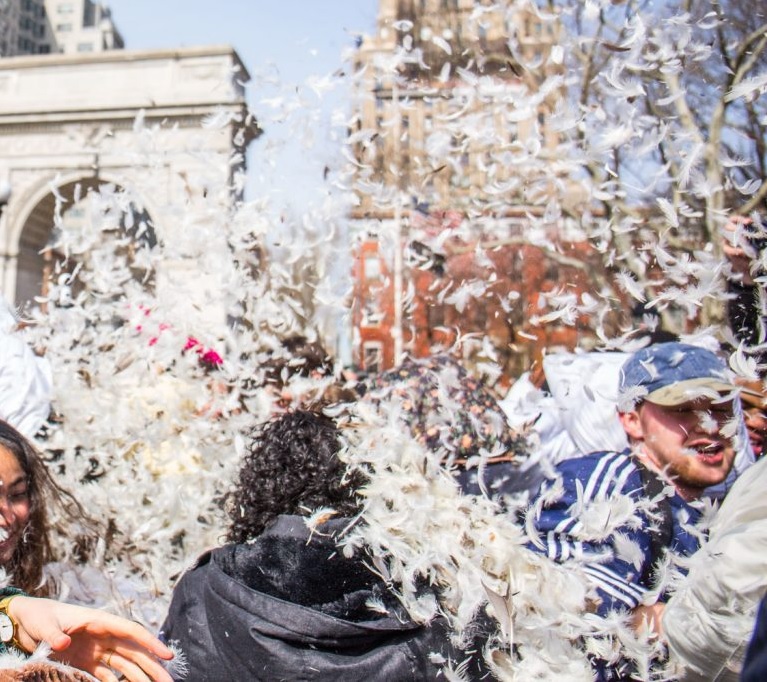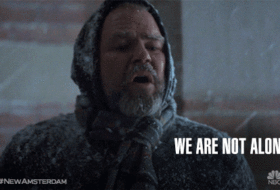Sometimes, as much as we try, we’re going to run into problems. What do we do when the feathers hit the fan? We need to be as proactive (not reactive) as possible, and plan our strategy now, even if we don’t think we’ll have a problem. Unlike fine wine, these types of issues don’t age well – so we need to plan for it and deal with it as soon as possible.
The reason we have fire drills ahead of an actual emergency is so we all know what we are supposed to do and where we are supposed to go when an emergency happens.
WISE Note: It feels personal if you handle situations on the fly. Have a policy and a plan in place. The more proactive and ready we are, the easier it will be to manage the unexpected…it’s why we do drills before an actual event. Remember kindergarten and fire drills?
1. “Over” Communicate. Set expectations upfront with staff and guests – it helps alleviate stress all around.
The most important thing we can do is to clearly define and communicate what our protocols and expectations are and then communicate our “here is what we are doing to keep both you and us safe” message to both the staff and guests multiple times:
- Have your website showing guests and staff wearing masks
- Share your expectations when reservation is made
- Call to confirm each reservation (day before, morning of)
- Host or concierge can also reiterate protocols to guests as they arrive and are seated
- Signage around the property to reinforce your protocols
People generally need to see/hear/notice a message seven times before they remember it…and not everyone absorbs information the same way, so have multiple ways of communicating.
And, if you’re experiencing other natural disasters like many regions, it’s even more important to set expectations and over-communicate. Closed due to forest fires nearby or too much smoke? Too much rain?
2. Policies & Protocols.
- If (when?) there is exposure, hopefully you already have a set plan in place – if you don’t yet, do it. Can you really be overprepared for it? Plan your steps from top down AND how you will communicate not only with all members of the team, but also the larger community (transparency versus rumor).
- Ready with HR / government support
- Protocols in place if anyone gets sick – shut down, cleaning, needs to be done right and done well – and owning it
- One winery learned from their neighbors on how they’ve handled exposure – consider working with your association to send out an anonymous survey to get lessons learned if anyone has had to work through this issue already (don’t reinvent the wheel and get insights on what we may be missing).
- To mitigate chances of spread, try to have not everyone work together, (although this is really hard when the tasting room is small, but consider pods of hospitality staff versus harvest staff versus winemaking staff, etc.)
- It often comes down to ownership and managers to step up if DTC staff at all has to be quarantined – many have no ‘extra’ staff – so we need management/owners to be prepared
- Staff traveling – what to do?
- Create (if you haven’t already) vacation protocols, and flesh out what steps staff/team members will need to do to come back to work (and if it varies by type of vacation – camping with the family in a remote area versus a friends’ get-away in Vegas)
- Have set procedures in place before you have to question one employee – don’t want them to feel singled out
3. Make Good Choices. We can make recommendations to the staff to stay safe, but how do we deal with staff who aren’t making safe choices on their own time?
- Share how it impacts the staffing and the overall business; remind the entire team of the regulations and the ways it would impact the business. Share the big picture / open book management.
- Staff mentality – ‘well, I’m around my coworkers all the time so what’s the big deal?’ Hard to socially distance already. If they can understand that your team is “the ‘household” and that exposure to others is increasing the odds, that might be helpful. Again, being ever-vigilant is difficult, but it’s a marathon, so we’ll need plenty of reminders along the way.
- Motivate them to spend their time differently:
- Suggest a virtual get together, offer some free wine
- Cash incentive to stay home and have fun instead of going out
- Gift cards to restaurants who carry your wine (also great for general motivation) with a safe environment
- If the winery property is a little more isolated, discourage carpooling, and be more generous with mileage reimbursement.
4. Guest Behave Badly. People are on edge during these uncertain times and workers in the hospitality industry seem to take the brunt of a lot of misguided anger and aggression. How can we de-escalate confrontations graciously?
Specifically, on COVID issues:
A. We can gently remind guests that the only way we can provide these experiences for guests, the only way we can stay open and have guests, is to follow state-mandated protocols.
B. Assign one person (manager, supervisor) on the floor each day to be the main policer/peacekeeper for all issues and escalate any potential or current problems as soon as possible to the Chief COVID Officer. This allows staff to focus on what they do best – provide a great experience and make sales.
Saying “No” Graciously, in general:
C. Sometimes we have to say no. But the first rule of hospitality is that we do not say “No.” The better reply is “Let me see what I can do for you.” Practice turning NO into graceful alternatives.
D. Consider the reason we need to say no and then have an answer based on these criteria:
- Safety / Compliance Issues – Know the regulations / Use 3rd parties as “bad cop”
- Internal Policies – Understand your big picture / guardrails when it comes to guest experience design
- Bothering Other Guests – Not bothering staff but creating a negative guest experience for others
- Desired Brand / Guest Experience
- Pleasing Them – Whenever Possible and not violating points #1 to #3 from above
- Inconvenient to Staff – Below all other criteria, especially #5.
Then ask yourself:
• Is it the right thing for our customers?
• Is it the right thing for our company?
• Is it safe?
• Is it something you are willing to be held accountable for?
• Is it legal and ethical?
If the answer is yes to ALL of these questions, don’t ask permission . . . JUST DO IT!




